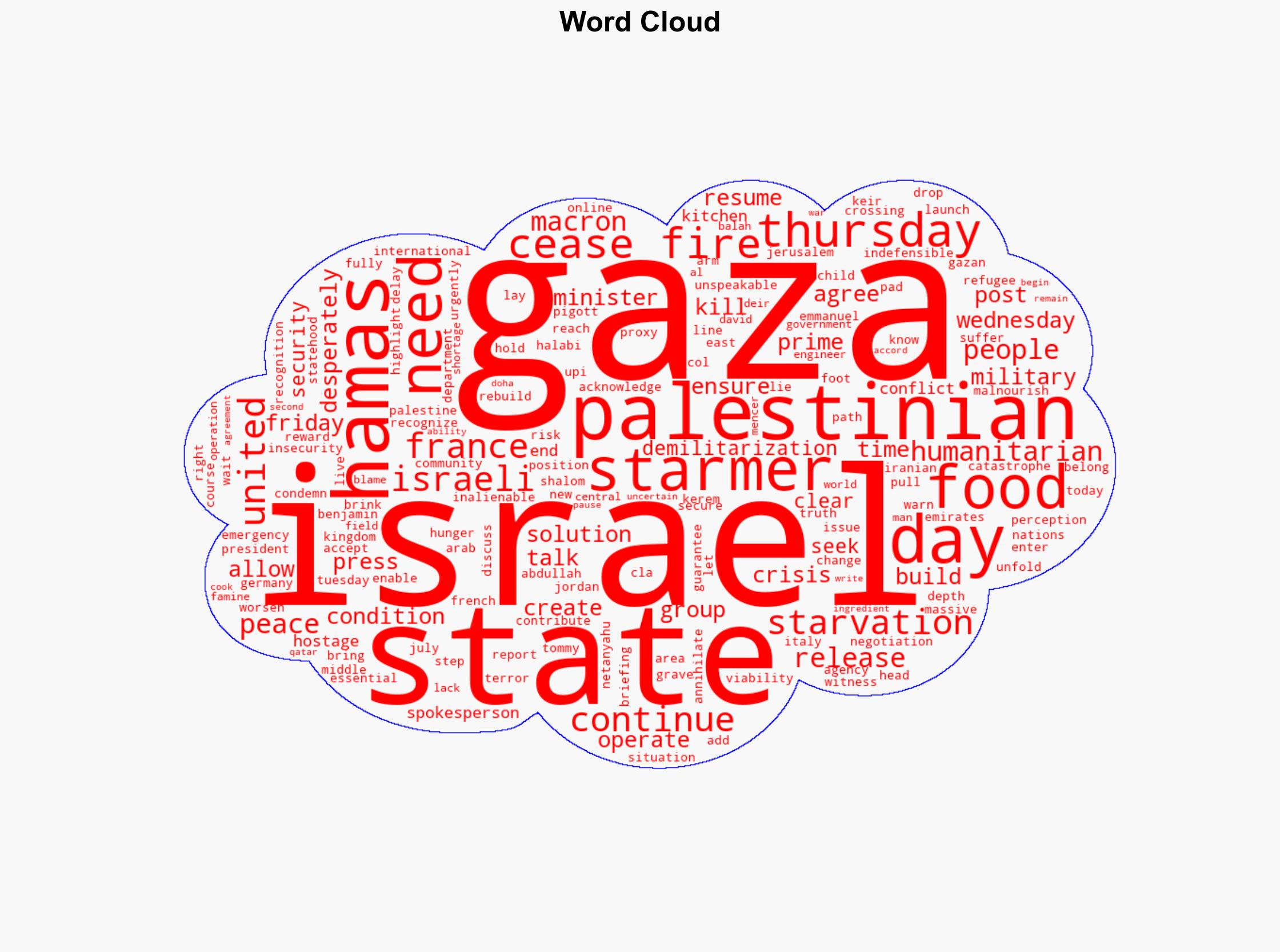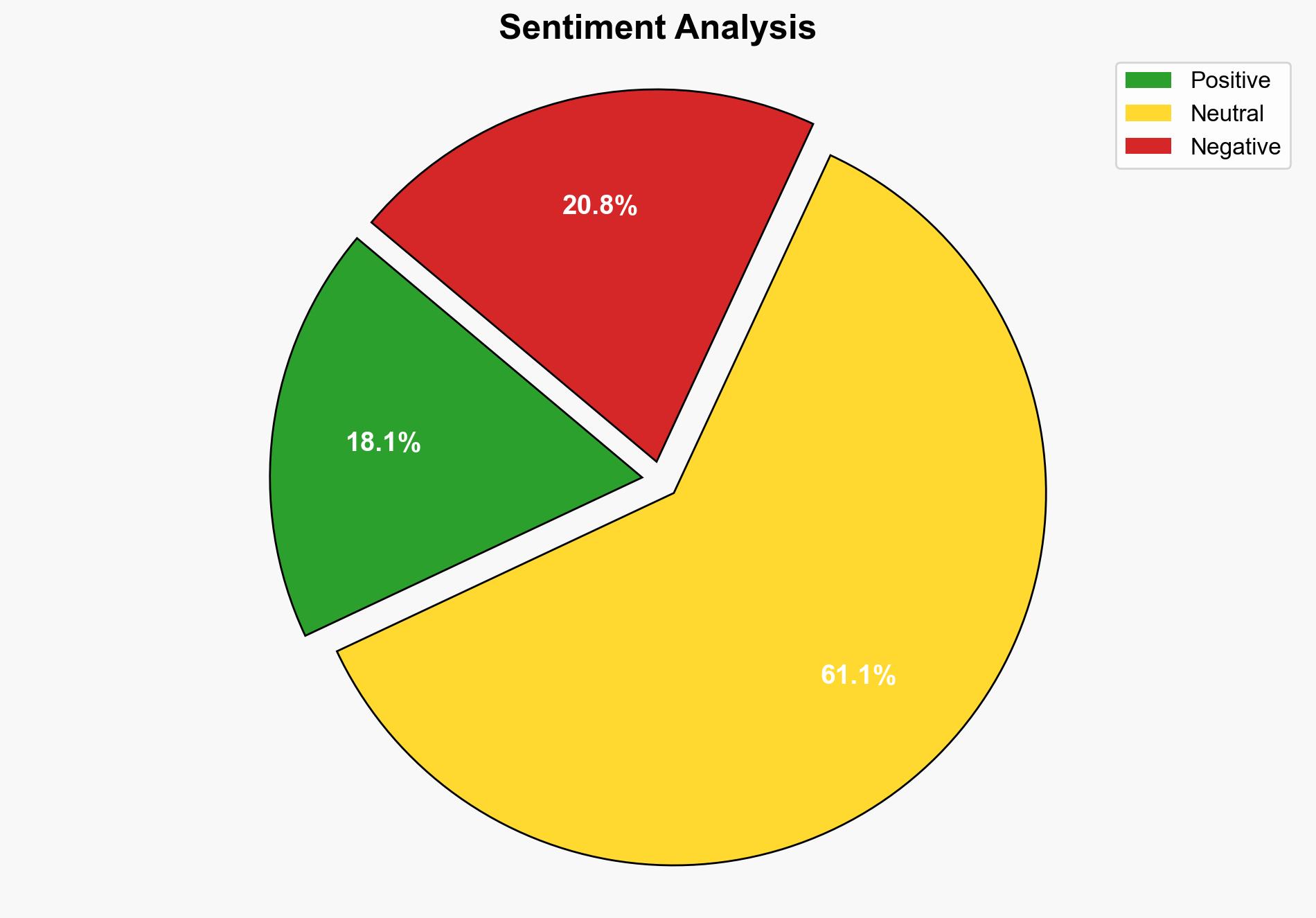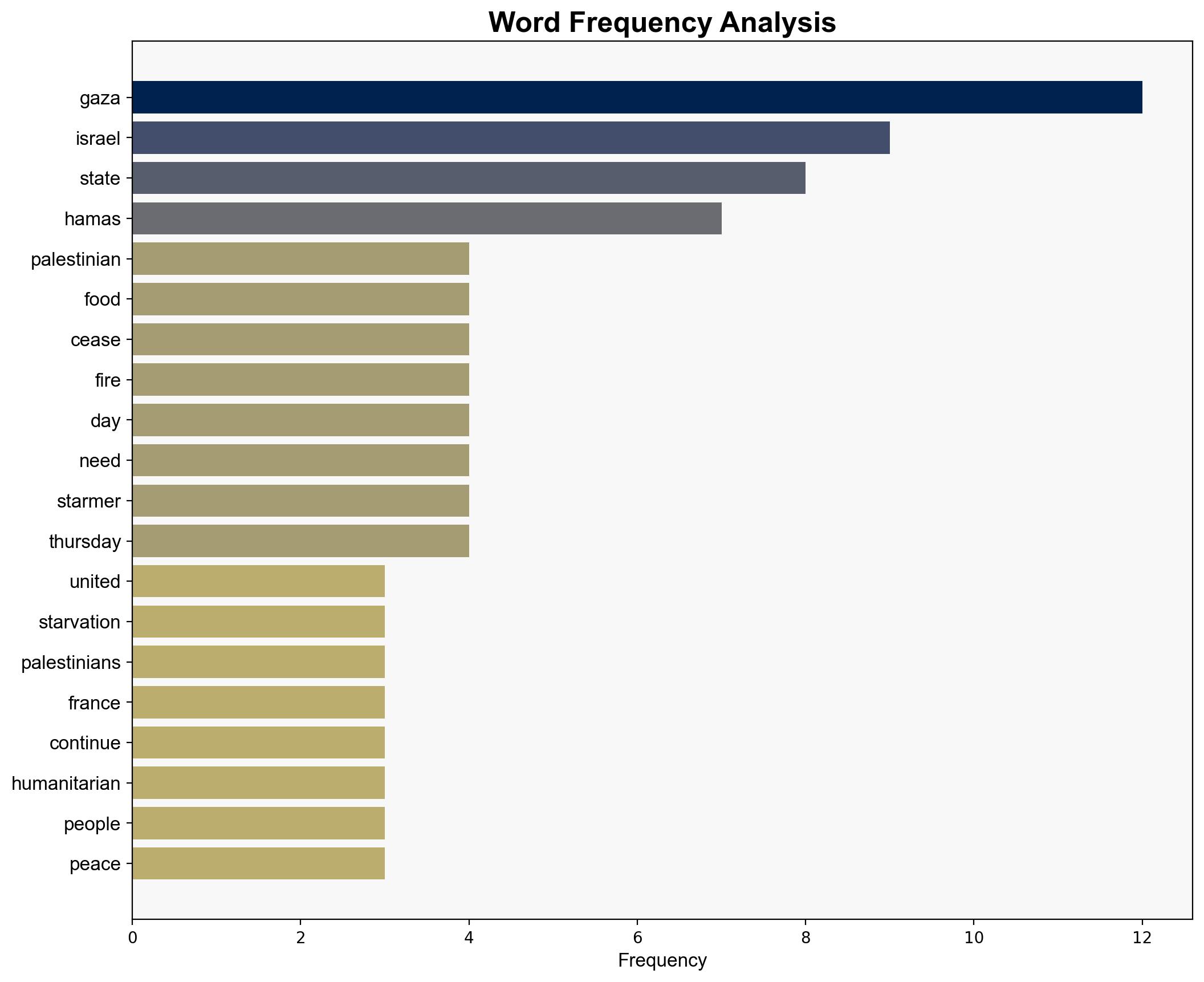Israel to allow aid to be dropped into Gaza – UPI.com
Published on: 2025-07-25
Intelligence Report: Israel to allow aid to be dropped into Gaza – UPI.com
1. BLUF (Bottom Line Up Front)
The most supported hypothesis is that Israel’s decision to allow aid into Gaza is a strategic move to alleviate international pressure and manage the humanitarian crisis narrative. Confidence in this hypothesis is moderate due to ongoing regional complexities and conflicting narratives. Recommended action is to monitor the situation closely and engage in diplomatic dialogues to support humanitarian efforts while addressing security concerns.
2. Competing Hypotheses
1. **Hypothesis A**: Israel’s decision to allow aid is primarily driven by humanitarian concerns and a genuine effort to prevent a humanitarian catastrophe in Gaza.
– **Supporting Evidence**: Israel’s acknowledgment of food insecurity and the decision to allow aid drops.
– **Contradictory Evidence**: Statements from Israeli officials blaming Hamas for the crisis, suggesting a strategic narrative rather than purely humanitarian motives.
2. **Hypothesis B**: The decision is a tactical maneuver to mitigate international criticism and pressure, while maintaining a hardline stance against Hamas.
– **Supporting Evidence**: International pressure from countries like France and the UK, and the need to manage perceptions of the crisis.
– **Contradictory Evidence**: The potential risk of aid being diverted to Hamas, which could undermine Israel’s security objectives.
3. Key Assumptions and Red Flags
– **Assumptions**: It is assumed that aid will reach the intended recipients without diversion. Another assumption is that international pressure significantly influences Israeli policy decisions.
– **Red Flags**: The potential for aid to be used by Hamas for non-humanitarian purposes. Inconsistent narratives between Israeli and international statements regarding the causes of the crisis.
– **Blind Spots**: Limited visibility into the actual distribution and impact of aid within Gaza.
4. Implications and Strategic Risks
– **Humanitarian Impact**: Successful aid delivery could alleviate immediate suffering but may not address long-term needs.
– **Geopolitical Risks**: Failure to manage the crisis could lead to increased regional instability and further international condemnation.
– **Security Concerns**: Aid diversion to Hamas could strengthen their position, complicating peace efforts.
– **Psychological Impact**: The crisis may fuel further resentment and radicalization if not addressed comprehensively.
5. Recommendations and Outlook
- Engage in multilateral diplomatic efforts to ensure transparent and effective aid distribution.
- Monitor aid flows to prevent diversion and misuse by non-state actors.
- Scenario Projections:
- **Best Case**: Aid reaches those in need, reducing humanitarian pressure and fostering conditions for dialogue.
- **Worst Case**: Aid is diverted, exacerbating tensions and leading to further conflict.
- **Most Likely**: Partial relief with continued political and security challenges.
6. Key Individuals and Entities
– Benjamin Netanyahu
– Emmanuel Macron
– Keir Starmer
– Tommy Pigott
– David Mencer
7. Thematic Tags
national security threats, humanitarian aid, regional stability, international diplomacy




